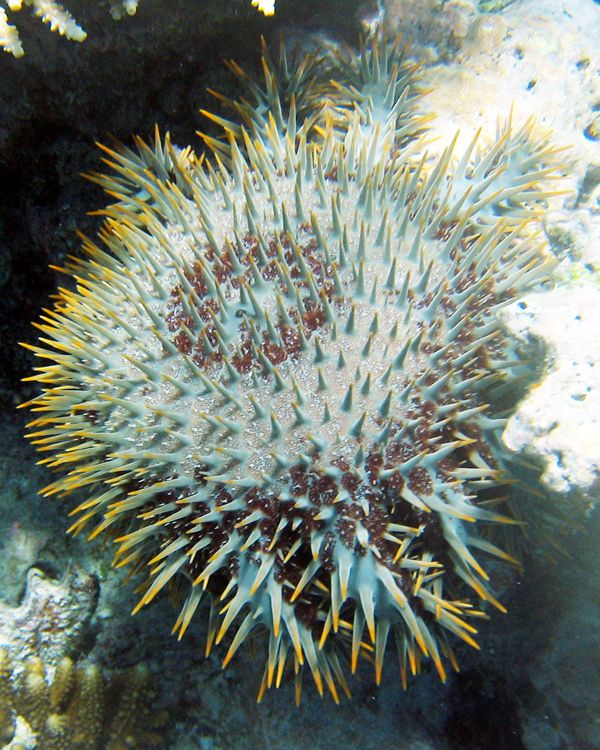Crown of thorns outbreak in Southern Leyte alarms conservationists
LILOAN, Southern Leyte – An outbreak of crown of thorns, locally known as dap-ag, has raised concerns among conservationists and locals as these starfish pose a significant threat to the coral reefs on Panaon Island.

CROWN of thorns starfish (Wikipedia)
Oceana, an international advocacy organization that promotes ocean conservation, in collaboration with the Department of Environment and Natural Resources (DENR)-Region 8 (Eastern Visayas) and other government and non-government organizations, has launched an initiative to protect and preserve the rich biodiversity of Panaon Island, recognized as one of the 50 priority reefs worldwide resilient to climate change, against the crown of thorns starfish.
Panaon Island has 19 locally managed Marine Protected Areas (MPAs) that showcase its commitment to safeguarding its coral reefs and marine life essential for food security and livelihood.
The discovery of the crown of thorns during a dive expedition in September 2019 prompted concerted efforts to mitigate reef distraction.
Ryan Tomol, one of the founders of the Dap-ag Boys, emphasized unity in safeguarding the coral reefs.
"Regardless of our personal differences, political, and religious beliefs, we are united with one goal to protect and save our coral reefs," Tomol said during the culmination of Month of the Ocean in Panaon Island on Friday, May 31.
According to Oceana, crown of thorns outbreaks could be attributed to the overfishing of their predators or natural phenomena, exacerbating stress on coral reefs.
Aside from their support, recent initiatives by the local government of Liloan, including an 11-day extraction operation surrounding Tagbak Marine Park, reflected the urgency in addressing this ecological challenge.
Oceana has been advocating the bill that aims to declare Panaon Island as a protected seascape under the Expanded National Integrated Protected Areas System Act or RA 11038.
The proposed Panaon Island Protected Seascape (PIPS) aims to encompass an area of 61,204 hectares, spanning across multiple municipalities in Southern Leyte.
"Our main problem is resources, once we become a protected area, we can lobby for support to promote our cause," Tomol said.
He urged the public to report presence of crown of thorns during their beach trips because they lack the manpower and resources to monitor their presence.
"If the coral reefs collapse, about 80 percent of our ocean will be affected," Tomol said, adding that one of their strategies in their information drive is educating fisherfolk about the importance of coral reefs in the ocean.